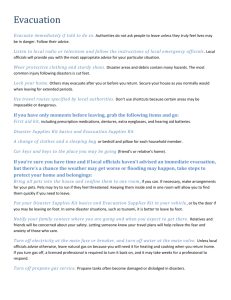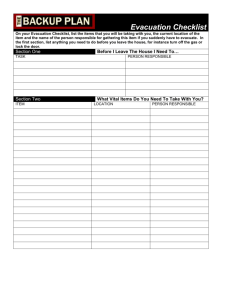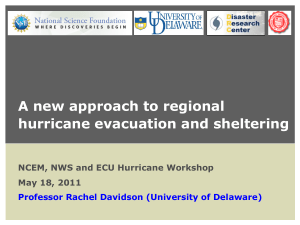Appendix A: Hazard Checklists and Procedures CheCklist #16
advertisement
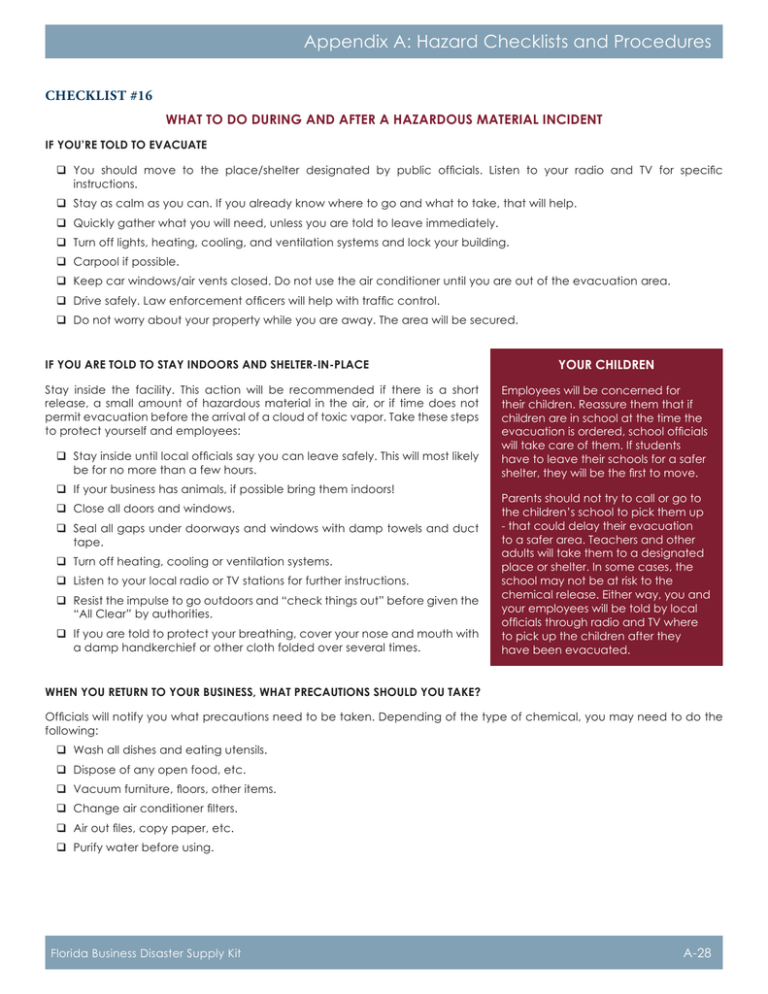
Appendix A: Hazard Checklists and Procedures Checklist #16 What To Do During and After a Hazardous Material Incident IF YOU’RE TOLD TO EVACUATE You should move to the place/shelter designated by public officials. Listen to your radio and TV for specific instructions. Stay as calm as you can. If you already know where to go and what to take, that will help. Quickly gather what you will need, unless you are told to leave immediately. Turn off lights, heating, cooling, and ventilation systems and lock your building. Carpool if possible. Keep car windows/air vents closed. Do not use the air conditioner until you are out of the evacuation area. Drive safely. Law enforcement officers will help with traffic control. Do not worry about your property while you are away. The area will be secured. IF YOU ARE TOLD TO STAY INDOORS AND SHELTER-IN-PLACE Stay inside the facility. This action will be recommended if there is a short release, a small amount of hazardous material in the air, or if time does not permit evacuation before the arrival of a cloud of toxic vapor. Take these steps to protect yourself and employees: Stay inside until local officials say you can leave safely. This will most likely be for no more than a few hours. If your business has animals, if possible bring them indoors! Close all doors and windows. Seal all gaps under doorways and windows with damp towels and duct tape. Turn off heating, cooling or ventilation systems. Listen to your local radio or TV stations for further instructions. Resist the impulse to go outdoors and “check things out” before given the “All Clear” by authorities. If you are told to protect your breathing, cover your nose and mouth with a damp handkerchief or other cloth folded over several times. YOUR CHILDREN Employees will be concerned for their children. Reassure them that if children are in school at the time the evacuation is ordered, school officials will take care of them. If students have to leave their schools for a safer shelter, they will be the first to move. Parents should not try to call or go to the children’s school to pick them up - that could delay their evacuation to a safer area. Teachers and other adults will take them to a designated place or shelter. In some cases, the school may not be at risk to the chemical release. Either way, you and your employees will be told by local officials through radio and TV where to pick up the children after they have been evacuated. WHEN YOU RETURN TO YOUR BUSINESS, WHAT PRECAUTIONS SHOULD YOU TAKE? Officials will notify you what precautions need to be taken. Depending of the type of chemical, you may need to do the following: Wash all dishes and eating utensils. Dispose of any open food, etc. Vacuum furniture, floors, other items. Change air conditioner filters. Air out files, copy paper, etc. Purify water before using. Florida Business Disaster Supply Kit A-28
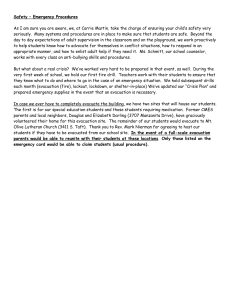
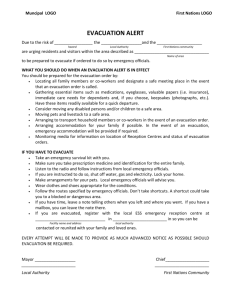
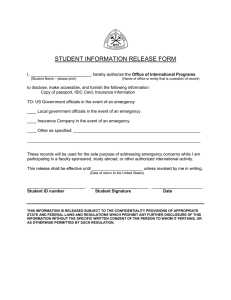
![Action Plan Training for College of Education [Erickson Hall]](http://s3.studylib.net/store/data/006838784_1-e08201da1f024d72d03dde66b95777a5-300x300.png)
